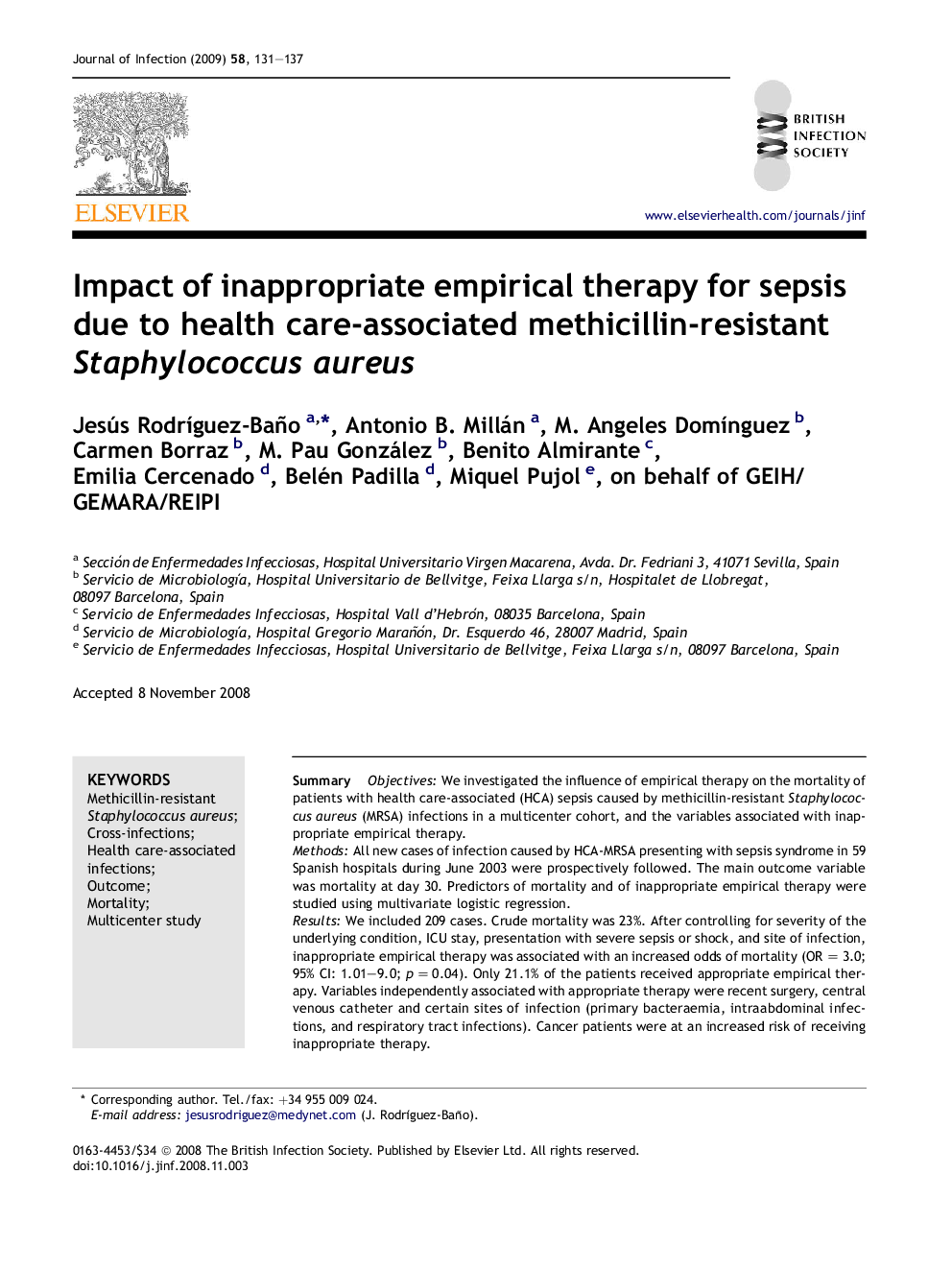| Article ID | Journal | Published Year | Pages | File Type |
|---|---|---|---|---|
| 3375961 | Journal of Infection | 2009 | 7 Pages |
SummaryObjectivesWe investigated the influence of empirical therapy on the mortality of patients with health care-associated (HCA) sepsis caused by methicillin-resistant Staphylococcus aureus (MRSA) infections in a multicenter cohort, and the variables associated with inappropriate empirical therapy.MethodsAll new cases of infection caused by HCA-MRSA presenting with sepsis syndrome in 59 Spanish hospitals during June 2003 were prospectively followed. The main outcome variable was mortality at day 30. Predictors of mortality and of inappropriate empirical therapy were studied using multivariate logistic regression.ResultsWe included 209 cases. Crude mortality was 23%. After controlling for severity of the underlying condition, ICU stay, presentation with severe sepsis or shock, and site of infection, inappropriate empirical therapy was associated with an increased odds of mortality (OR = 3.0; 95% CI: 1.01–9.0; p = 0.04). Only 21.1% of the patients received appropriate empirical therapy. Variables independently associated with appropriate therapy were recent surgery, central venous catheter and certain sites of infection (primary bacteraemia, intraabdominal infections, and respiratory tract infections). Cancer patients were at an increased risk of receiving inappropriate therapy.ConclusionsInappropriate empirical therapy was independently associated with increased mortality in this multicenter cohort. Clinicians should be aware of the need to consider coverage against MRSA more frequently.
